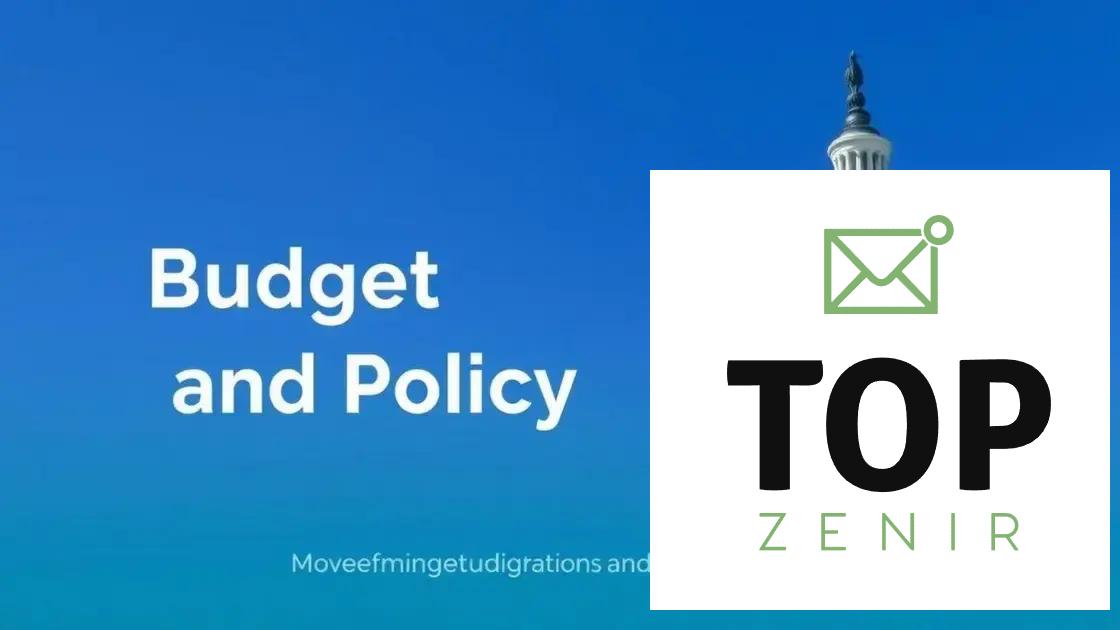Federal budget reshapes benefit program priorities

Individuals can adapt to changes in benefit programs by staying informed about policies, utilizing available resources, and building support networks to navigate funding shifts effectively.
Federal budget reshapes benefit program priorities, impacting various communities and resources. Have you thought about how these shifts might influence your daily life? Dive in to explore the details.
Understanding the federal budget process
Understanding the federal budget process is essential for grasping how government funding priorities are established. This process impacts numerous benefit programs and the individuals who rely on them.
Key Steps in the Federal Budget Process
The federal budget process involves several important steps that dictate how money is allocated. Each step is crucial in ensuring transparency and accountability.
- Preparation: Agencies analyze their needs and submit budget requests.
- Submission: The President submits a proposed budget to Congress.
- Review: Congress reviews the budget, making adjustments as necessary.
- Approval: After discussions and changes, Congress approves the budget.
This budget cycle can indicate which areas will receive funding and how benefits will be prioritized. Each stage heavily influences the final outcome.
Moreover, it is vital to realize that the budget is not static. Changes can occur based on economic conditions or shifting priorities. As a result, individuals should stay informed about potential adjustments that can affect their benefits.
Impact of the Budget on Benefit Programs
The decisions made during the budget process directly affect various benefit programs, reshaping priorities. Programs like Social Security, Medicare, and unemployment benefits may see funding changes based on budget allocations.
For individuals relying on these benefits, understanding how the federal budget influences them can empower better financial planning. For instance, cuts in funding could lead to reduced services or altered eligibility, making it essential to keep up with federal budget discussions.
Being engaged with this process allows the public to advocate for necessary changes and support programs that matter most to their communities.
Impact of budget changes on benefit programs

The impact of budget changes on benefit programs is significant and affects many individuals across the country. Changes in the federal budget can alter funding for programs like Social Security, Medicaid, and food assistance.
How Budget Cuts Affect Benefits
When budget cuts occur, the implications can be drastic. Programs may face funding reductions that lead to fewer resources available for beneficiaries.
- Reduced eligibility for assistance programs.
- Longer wait times for services.
- Decreased funding for essential healthcare services.
- Less money for food stamps and nutritional support.
Each of these effects can have a ripple effect on communities, making it harder for individuals to meet their basic needs.
Understanding these challenges is vital. As funding fluctuates, programs may have to prioritize certain groups over others, leading to disparities in assistance. For families relying on these services, being aware of potential changes can help in planning for the future.
Shifts in Program Priorities
With changes in the budget, there may also come shifts in program priorities. Some programs can be expanded while others are scaled back. This evolution reflects the government’s response to current needs or political pressures.
For instance, if unemployment rates rise, there may be increased funding directed toward job training programs. Conversely, assistance programs might see cuts if they are deemed less essential.
Staying informed about these changes can help individuals advocate for their needs and adjust their expectations and plans accordingly.
Key sectors affected by funding adjustments
Funding adjustments in the federal budget can have a broad impact on various key sectors. Understanding which areas are affected helps individuals see where essential services might change.
Education Sector
The education sector often feels the impact of funding adjustments. Changes in the budget can lead to shifts in resources allocated to public schools, universities, and vocational training programs.
- Increased funding can improve teacher salaries and resources.
- Decreased funding may result in larger class sizes and fewer programs.
- Federal grants may influence access to technology in classrooms.
- Scholarship availability can be affected, limiting student opportunities.
Each of these factors can significantly influence educational outcomes and opportunities for students.
Healthcare Sector
Another crucial sector impacted by budget changes is healthcare. Adjustments can lead to altered funding for programs like Medicare and Medicaid.
When funding decreases, hospitals and clinics may struggle to provide necessary services. Many individuals rely on these programs for their health needs. Understanding the flow of funding can help individuals navigate their healthcare options more effectively.
Social Services
The social services sector also encounters significant changes due to budget adjustments. Programs that assist low-income families, the elderly, and persons with disabilities may see varied impacts.
- Resource availability for food assistance programs can fluctuate.
- Housing assistance may become harder to access with funding cuts.
- Support services for mental health and addiction can face reductions.
- Programs aimed at job training can see changes in funding levels.
This affects how communities support their most vulnerable populations, making it crucial for citizens to stay informed about funding decisions.
Future trends in benefit program priorities
The future trends in benefit program priorities are likely to reflect societal needs and economic conditions. As the landscape changes, programs must adapt to better serve the population.
Increased Focus on Mental Health
One significant trend is an increased focus on mental health services. As awareness of mental health issues grows, funding may shift to prioritize these programs. This can lead to better access for those in need.
- Expansion of community mental health centers.
- Increased support for telehealth mental health services.
- Funding for mental health education programs in schools.
These changes are vital as they aim to address the rising mental health concerns in the community.
Greater Emphasis on Technology
Another trend involves the use of technology in benefit programs. As the digital age evolves, programs that incorporate technology can improve efficiency and accessibility.
For example, online applications for assistance can streamline the process and make it more user-friendly. Additionally, the implementation of apps for tracking benefits can provide users with real-time information.
Programs Targeting Economic Mobility
There is also a growing emphasis on programs that promote economic mobility. This trend reflects the understanding that merely providing benefits is not enough; individuals need support in becoming self-sufficient.
- Job training and apprenticeships may see increased funds.
- Programs that offer financial planning and literacy education are likely to expand.
- Support for small business initiatives can empower communities.
These advancements can help reduce dependency on social services over time.
How individuals can adapt to these changes
Individuals can adapt to changes in benefit programs by staying informed and proactive. Understanding the shifts in funding and priorities helps people navigate available resources more effectively.
Stay Informed About Policy Changes
One of the best ways to adapt is to stay updated on the latest policies affecting benefit programs. Regularly check government websites and local news sources to get accurate information. Engagement with community meetings can also help individuals voice their concerns and gather insights.
- Subscribe to newsletters from advocacy groups.
- Attend public meetings related to social services.
- Follow changes in local and federal budget discussions.
Being knowledgeable about these issues can empower individuals to seek necessary support.
Utilize Available Resources
People should also take advantage of the resources available to them. Many communities have organizations that offer assistance with navigating benefit programs. These organizations can provide valuable help in understanding eligibility and application processes.
Workshops on financial literacy and support groups can offer additional guidance. Programs that teach skills for job readiness and financial planning can enhance one’s ability to adapt.
Build a Support Network
Establishing connections with others can make a substantial difference. Creating a support network fosters an environment where individuals can share experiences and advice. This network could be friends, family, or community groups who understand the challenges posed by changes in benefit programs.
- Join local support groups focused on social services.
- Engage with online communities discussing benefits.
- Share your experiences and insights to help others.
These interactions can lead to discovering new opportunities and resources that one may not have known about.
Adapting to changes in benefit programs is crucial for individuals and their families. By staying informed about the changes, utilizing the available resources, and building supportive networks, people can navigate these shifts more effectively. Embracing new trends and understanding the dynamics of federal budget impacts will empower individuals to advocate for their needs and secure the resources that matter most.
FAQ – Frequently Asked Questions About Adapting to Changes in Benefit Programs
How can I stay updated on changes in benefit programs?
You can stay updated by subscribing to newsletters, attending community meetings, and regularly checking government websites.
What resources are available to help with navigating benefits?
Many community organizations offer assistance in understanding eligibility and application processes for benefit programs.
Why is it important to build a support network?
A support network allows individuals to share experiences, advice, and discover resources that can help them adapt to changes.
What skills should I focus on to improve my economic mobility?
Focus on job training, financial planning, and improving your literacy skills to enhance your ability to become self-sufficient.





